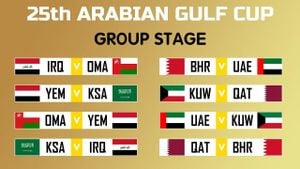On Saturday, protests against Bulgaria's planned adoption of the euro turned violent, as thousands of demonstrators clashed with police outside the European Union's office in Sofia. Organized by the far-right party Vazrazhdane (Revival), the demonstrations, which reportedly drew between 2,000 and 10,000 participants, have highlighted the deep divisions within the nation over this significant economic shift.
The unrest erupted when protesters attempted to storm the EU representation building, throwing Molotov cocktails and other projectiles. Eyewitness accounts from AFP indicate demonstrators set the entrance door on fire, smashed windows, and defaced the building with red paint. Bulgarian police intervened with tear gas, resulting in minor injuries to ten officers and the arrest of six individuals.
European Commission President Ursula von der Leyen took to social media to condemn the "outrageous scenes" witnessed, stating, "Violence and vandalism are never the answer." Bulgaria's government also issued a statement denouncing the attacks as unacceptable and contradictory to the principles of the rule of law. The protesters burned effigies of high-ranking EU officials, including European Central Bank (ECB) President Christine Lagarde, voicing their opposition to what they perceive as external imposition on Bulgaria's national policies.
The demonstrations point to broader public skepticism about euro adoption. Recent polling indicates around 57% of Bulgarians oppose the transition, fearing potential price hikes and economic instability akin to those experienced by Croatia after it adopted the euro. The timing of the protests also coincided with Bulgaria's intensified efforts to qualify for eurozone membership, aiming for adoption by January 1, 2026.
Prime Minister Rossen Zhelyazkov reaffirmed Bulgaria's intention to meet the requirements for euro adoption, which include reaching specified inflation targets. Nevertheless, opposition parties within the ruling coalition, including the Bulgarian Socialist Party and the populist There Are Such People, express doubts about the government's commitment to this goal.
The Vazrazhdane party has been vocal about its resistance to euro adoption, alleging manipulation of economic data by the Bulgarian National Bank (BNB) and government entities to expedite the process. They defended the protests as legitimate expressions of civic dissent, stating, "When citizens of France or Georgia express their position... it is democratic, and when Bulgarians do the same, it is called vandalism." This statement reflects their claim of perceived double standards when it pertains to protests.
Dimitar Radev, the BNB governor, expressed support for the government's request for an extraordinary convergence report—an important step toward eurozone accession. Radev described allegations made by the Revival party about IMF involvement as unfounded political maneuvering. With the state budget for 2025 aiming for a deficit target of around 3%, necessary for euro adoption, time will tell if Bulgaria can come together to meet stringent eurozone criteria.
The division among the populace and within political circles showcases the tension between national pride and economic realities. With widespread dissent and varying viewpoints, the struggle over Bulgaria's euro adoption reflects not just economic concerns but also national identity and sovereignty. While the government pushes forward with its eurozone aspirations, the effectiveness of its strategy amid public opposition remains to be seen.



